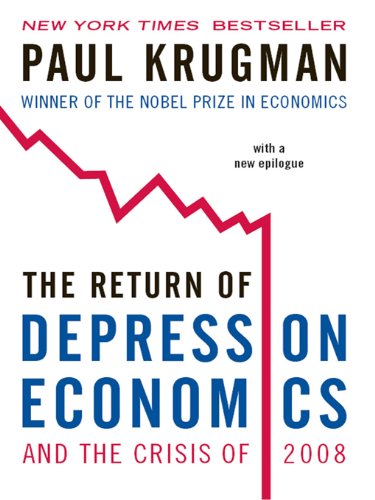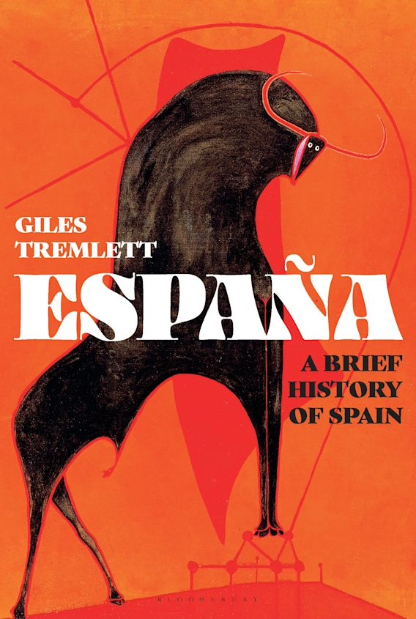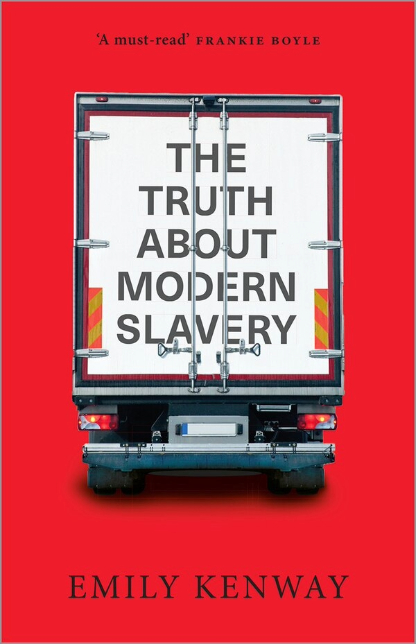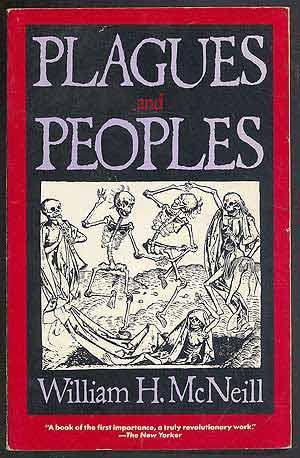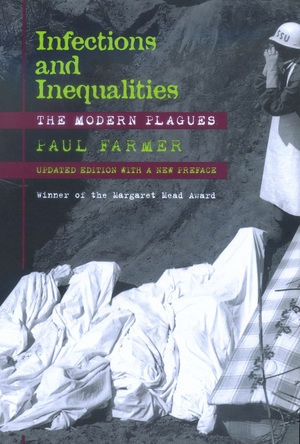The Threat: How the FBI Protects America in the Age of Terror and Trump, Andrew G. McCabe, St. Martin’s Press, 2019, pp. 274, $39.99, ISBN 978-1-250-20757-9
The Trump presidency has proven to be a boon to the publishing industry.
Both key and minor players who voluntarily quit, or as is more often the case, were fired by the President have decided to pen their experiences and offer it to the publishers. There is the former FBI Director James Comey, whose A Higher Loyalty likens the President of the United States to a mafia boss; former Director of National Intelligence James Clapper Jr’s Facts and Fears reinvigorates the Cold War rhetoric regarding Russia and the US; former Press Secretary Sean Spicer’s The Briefing, which settles scores with Paul Manafort and attempts to defend Trump while restoring personal dignity; former Director of Communications Anthony Scarammuci’s The Blue Collar President, which likewise attempts to defend Trump. What do they have in common?
Then there are the more salacious books, such as Omarosa Manigault Newman’s Unhinged, which accuses Trump of racism, and states that he is getting dumber by the day, essentially. She also has tapes, which were secretly recorded inside the White House, to prove it. Stormy Daniels details Trump’s sexual preferences and the size of his genitalia in Full Disclosure. Roger Stone’s The Myth of Russian Collusion reveals the plot in its title.
Others have not put pen to paper just yet, but the publishers are circling them with offers. Hope Hick’s, who served as the White House Communications Director, and reportedly kept a personal diary on the White House, was offered $10 million from an advance in a book deal. H.R McMaster’s Battleground is scheduled for 2020 and will cover the lieutenant general’s 34-year military career and his tenure as the White House’s national security adviser.
This is merely a list of some of those who held a government office or were in the President’s inner circle.
The journalistic accounts of the presidency abound and are too numerous to list. Michael Wolf, Bob Woodward, David Frum, Greg Miller, Donna Brazile, and Craig Unger to name a few. The level of triviality in each borders the absurd and portrays Trump as a man-child, which he might as well be. While the President’s personal characteristics are important, a heavy focus on the brand of ice-cream the President eats or golden chairs in his tower tends to distract from important real-life consequences his policies have on the working poor, health care, the environment and the possibility of nuclear annihilation.
These books follow the well-developed Trump-to-published author pipeline. It consists of a couple of steps. First, the potential author holds a government office or is an investigative journalist, then the potential author has a spat with the president, which results in the potential author being fired. The potential author submits a proposal at which point the potential author becomes a published author, realizing their potential if you will. Following the publication, the author tours the media stations whose outlook matches the tone of the book and the book’s portrayal of the President. Therefore, Jim Comey was seen on CNN, MSNBC, and ABC, while Sean Spicer was more of a Fox News kind a gal. The books tell the story of an individual devoted to the rule of law and democracy, unwilling to betray their ideals and submit to authoritarian President. Or that of an individual who decides to leave the administration, all the better to serve the President and the mythical ‘American people’. Every book is a presented as a bombshell revelation, revealing new shocking details. One stands in awe at the ability of the American public to continually be shocked.
Former Deputy FBI Director and former acting FBI Director Andrew G. McCabe’s book is no different. His book The Threat fits neatly into the Trump-to-published author pipeline. Having been involved in two most politically charged investigations, namely the investigation into Hilary Clinton’s use of private servers to handle government affairs (codenamed Midyear Exam), and Trump’s campaign ties to Russia, McCabe’s role put him in direct crosshairs of the President. After Hilary was simply chided by the FBI for her ‘extreme recklessness’ in her use of private email servers, while the investigation into alleged Trump-Russia ties continued, the President moved in for the kill.
McCabe’s wife, Dr. Jill McCabe, ran for the State Senate seat in Virginia in 2015 as a Democrat. Her campaign received donations from a political action committee run by the then-Governor of Virginia Terry McAuliffe, who is a close ally of the Clintons. In the book, McCabe goes to great lengths to dissociate himself from his wife’s campaign by outlining the steps he took to judge the ethics behind his wife’s run for office and his position within the FBI. After having consulted Director Comey, counsel Baker, and the ethics officer at the FBI, McCabe was informed that there would be no ethical breaches in his continued tenure at the FBI while his wife ran for political office. After all, how could a lifelong registered Republican that Andrew McCabe is, be supporting Democrats? The President seems to have found these facts unconvincing and took a direct aim at McCabe on twitter, denigrating him and cheering after he was fired.
The Threat is a lengthy defense of the FBI and McCabe’s involvement with it. Its main proposition is that “the work of the FBI is being undermined by the current President. He and his partisan supporters have become corrosive to the organization”. McCabe details how the FBI functions, its structure, and its goals by way of recounting his personal association with the agency. Starting from the FD-302s, the official form used by agents to summarize or report on interviews, to the contacts policy between the FBI and the White House and the enterprise theory of investigation. The focus on procedures, structure, and work is a direct rebuke of both Presidential and Congressional attacks on the FBI’s partiality. By outlining these, McCabe hopes to shield the FBI from these attacks and remove the agency from the political bickering in Washington, while presenting it as an agency pursuing its mission: “To Protect the American people and uphold the Constitution of the United States”.
What is particularly striking in McCabe’s recounting of his involvement in FBI’s pursuit of Russian mobsters in New York, international and domestic terrorists is his uncritical look at the policies the FBI was executing. Take the leads the FBI received from the public following the 9/11 attacks. McCabe states that the FBI would follow the leads, arrive at the doorstep and strike up a conversation with the occupants. If you happened to be from a Middle Eastern country and lacked identification, you would have been detained. As he states “detainees were virtually all Middle Eastern”…” they were virtually all dark-skinned” and “they were not treated with courtesy”. McCabe appears to be the FBI’s foremost cheerleader, disregarding the blatant racial profiling and the consequences it had on Americans of Middle Eastern descent. At times, the FBI appears as a paranoid agency run amok. This is misconstrued by McCabe to be the proof of the FBI’s commitment, but in fact, acts to justify any and all actions undertaken by the agency.
Quirky details about prominent individuals in administrations is what sells. McCabe’s discussion then turns to his assessment of various Attorney Generals he interacted with in the administrations of George W. Bush, Barack Obama, and Donald Trump. Attorney General Eric Holder asked many questions and McCabe never thought that “he was speaking from a set of firm biases or preconceived opinions”. Holder did not need any education or background information and was everything you’d “expect a good attorney to be”. When Holder left and Loretta Lynch took over, McCabe noticed a change. Lynch appeared not to have ever read the ‘book’, a compilation of national security threats presented to the AG in the daily brief (there is a person whose job is to compile this overnight at the FBI). “There was a lot of us sitting there while the attorney general and deputy attorney general would read in silence”, and McCabe doesn’t remember her asking a lot of questions. Moving on to Jeff Sessions in his narrative, it appears obvious why the characterization of the previous AGs was important. Sessions “had trouble focusing”, he “seemed to lack basic knowledge about the jurisdictions of various arms of federal law enforcement”, and he also “seemed to have little interest in the expertise and arguments of others”. No matter what the FBI brought before Sessions, the major interest of his would be immigration and drugs. He would ask “where do they come from?”. Sessions never read the ‘book’. He was also racist, reminiscing about the olden days when the FBI would only hire drunken Irishmen. He was the embodiment of the Trump administration, and he was everything the others were not. In a negative way, of course.
McCabe also details the apparent pressure exerted on the FBI by the Obama administration when the agency was investigating Hilary’s use of email servers. In September 2015, Comey and Lynch discussed how to acknowledge the investigation and Lynch urged Comey to refer to it as a “matter” rather than an investigation. In describing the fiasco, McCabe distances himself from the decision taken by Comey, such as him hosting a solo press conference announcing that there was no criminal intent in Hilary handling of the information, merely her extreme carelessness. In retrospect, he was against it and acknowledges that the FBI may have influenced the 2016 Presidential election. His apparent distaste for the politicians and their ilk reaching a crescendo.
McCabe’s narrative touches all the hot topics on the American political scene: the texts between Page and Strzok, Trump’s admiration for Putin and his distrust of his intelligence community. He reserves special mention for the hottest topic of all, namely, Robert S. Mueller III. From his recounted interactions with the man (one is tempted to capitalize the M), we find out that Mueller likes link charts, but detests diagonal charts. There are colors that he likes, and colors that he does not. Most important of all, you should not use too many colors when presenting a complicated case. McCabe intricately describes Mueller’s mannerisms and what they signify. When you see his face fall, he is displeased with the product presented; too many colors perhaps. If he leaned forward and smacked the side of his hand against his head, it would mean it was all over. When he kicks back his chair, sits up straight, putting his hand to mouth and circling his chin, it means you’ve got his attention. McCabe showers Mueller with praise as if to reaffirm Mueller’s integrity in the face of attacks leveled against him. He defends Mueller’s professionalism, curiosity, thoroughness, and commitment.
Appearing on CBS’s 60 Minutes in one of his media blitzes, McCabe told Scott Pelley that the Deputy Attorney General Rod Rosenstein had offered to wear a wire into the White House. McCabe assured the host Rosenstein was serious and repeated his offer on multiple occasions. This episode is lacking in the book and one wonders why McCabe chose to reserve it for the media. Rosenstein features prominently in The Threat, as McCabe discusses the Deputy AGs regret at having been forced to draft a memo justifying the firing of Jim Comey, and their deliberations regarding the appointment of the special counsel to prove Trump’s ties to Russia. The reader almost feels sorry for Rosenstein who appears on the verge of a nervous breakdown. In one of the meetings, Rosenstein’s eyes are glistening, his gaze lost in the distance, attempting to atone for the sins of firing Comey.
One does not learn anything new in The Threat. The book joins a steady stream of books on the Trump Presidency. This one falls into the category that attempts to sound the alarm bells at the increasingly authoritarian tendencies of Doland Trump and his administration’s erosion of established norms. Like others, the point of departure against which Trump’s actions are analyzed is taken for granted and implicitly justified. What happens when the reference point of normalcy itself is compromised? We’ll never know. At least not from these books.
